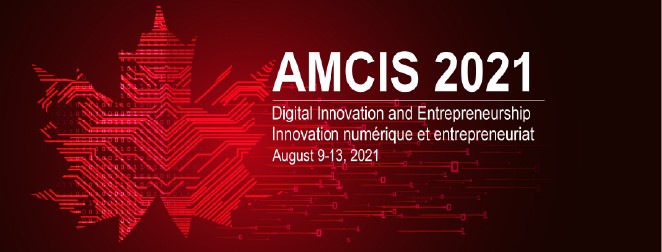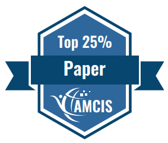Advances in Information Systems (General Track)
Loading...
Paper Type
Complete
Paper Number
1717
Description
This study illuminates the signals that cause contributors to perceive realness and fakeness in a crowdfunding campaign. A grounded theory approach involving 818 human evaluations of 225 COVID-19-related charitable crowdfunding campaigns identified the validity of the campaign’s stated need, its descriptive detail and writing quality, and having a reputable campaign sponsor as important signals of realness and/or deception, as well as other factors. Commonly used NLP measures have heavy overlap with these reported signals, but by themselves reflect roughly half of the variance explained. Crowdfunding platforms can use this information to help campaign organizers improve public perceptions.
Recommended Citation
Gaskin, James; Keith, Mark; Meservy, Tom; Twyman, Nathan; and Wells, Taylor, "Crowdfunding Deception Perception: What Makes Would-Be Contributors Perceive Fakeness in Crowdfunding Campaigns?" (2021). AMCIS 2021 Proceedings. 29.
https://aisel.aisnet.org/amcis2021/adv_info_systems_general_track/adv_info_systems_general_track/29
Crowdfunding Deception Perception: What Makes Would-Be Contributors Perceive Fakeness in Crowdfunding Campaigns?
This study illuminates the signals that cause contributors to perceive realness and fakeness in a crowdfunding campaign. A grounded theory approach involving 818 human evaluations of 225 COVID-19-related charitable crowdfunding campaigns identified the validity of the campaign’s stated need, its descriptive detail and writing quality, and having a reputable campaign sponsor as important signals of realness and/or deception, as well as other factors. Commonly used NLP measures have heavy overlap with these reported signals, but by themselves reflect roughly half of the variance explained. Crowdfunding platforms can use this information to help campaign organizers improve public perceptions.
When commenting on articles, please be friendly, welcoming, respectful and abide by the AIS eLibrary Discussion Thread Code of Conduct posted here.



